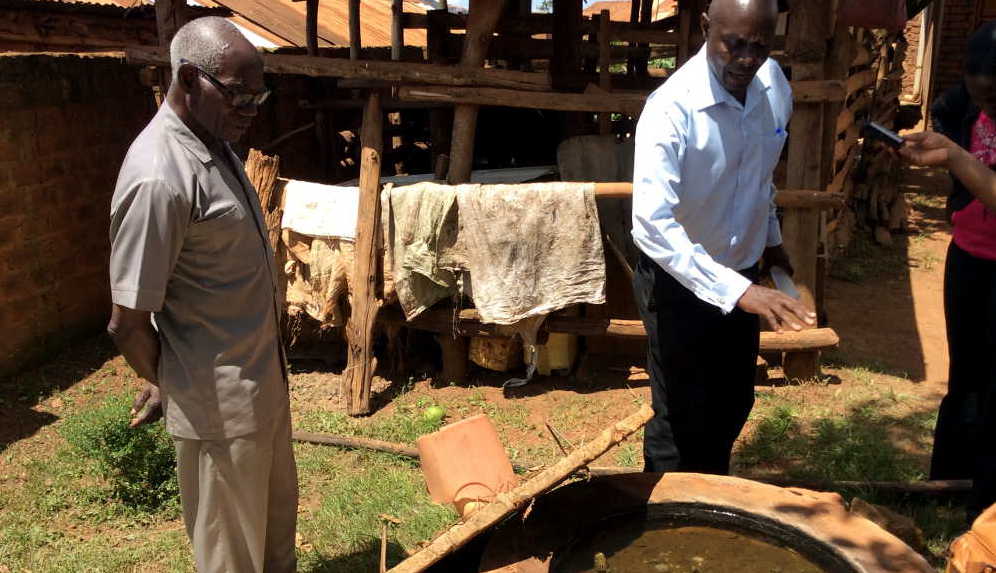human traffickingFeatures
Biogas takes worries out of pensioner’s life, saves planet
Energy is a major source of concern whichever part of the globe you go. In Uganda, more so cooking energy has become a touchy subject for families and the country as a whole following the rapid rate of deforestation that has resulted into a sharp increase in price of wood fuel and charcoal.
The most recent Panel Survey findings by the Uganda Bureau of Statistics (UBOS) shows that fuel and rent constitute 17% of household expenditures, only second to food which takes up 47% of household spending.
The increase in the cost of fuel, coupled with other considerations such as the need to promote hygiene, tackle climate change, have sparked some creativity.
Experts argue that biogas energy provides a clean alternative source of renewable energy, especially in a country like Uganda where a good number of families keep livestock. In addition, conversion of cow dung into a useful cooking fuel, not only improves people’s bottom lines, but it also saves the environment avoiding the dangerous methane gas from escaping into the earth’s atmosphere and contributing to climate change.
Methane gas which comes from animal waste, is 84 times more potent than carbon dioxide the key gas that contribute to climate change.
Mzee John Chrysostom Sserwadda, of Mukalazi zone in Kawempe division, Kampala is one of the few Ugandans who have discovered the liberating power of biogas.
In 2007, Mzee Sserwadda embraced biogas after being educated about its benefits by researchers from the Agricultural Engineering and Appropriate Technology Research Centre (EATREC) Namalere Wakiso district.
“The scientists saw that I was keeping animals in a tight urban place and yet I was struggling with dung. They gathered a few of us and trained us on the advantages of adopting biogas,” narrates Sserwadda.
Sserwadda kept five cows in his courtyard which he kept for milk consumption but also as a source of income to supplement his little pension.
But he narrated to The Sunrise that his farming enterprise was a constant source of headache for him as well as his neighbours. He says that the heaps of dung produced by the cows would pollute the air with a foul smell that would send away his visitors before they were ready to leave.
With a substantial investment of some Ushs10m, Sserwada got the scientists to put up an mid-sized biogas system.
He has never been disappointed ever since. Thanks in part to the cleaner, convenient and less-stressful biogas system, Sserwadda attributes his 24 years of retirement to things like a stress-free life that was made possible by the biogas system.
“Since I started using biogas, my expenditure on charcoal has reduced by nearly 80 percent,” adds Sserwadda: “With regard to hygiene, this system has saved me a lot. My home used to be a swarm of flies that made home quite unfavourable.”
George Makumbi, the EATREC-bassed scientist who helped install Mzee Sserwadda’s biogas plant says that biogas brings several benefits to users beyond saving them money. He notes that the slurry or refuse from the biogas system is a fantastic organic fertilizer.
And in this day and age when the world is concerned about curbing the effects of climate change, biogas production comes as a major intervention because the system saves the planet by converting the more dangerous methane gas that comes off dung into carbon dioxide.
But even with its many benefits, experts warn that biogas can only work in a zero-grazing system where cow dung free of impurities such as stones can be collected for use in the system.
Biogas is not necessarily new to Uganda. As Makumbi explained, lack of adequate funds needed for upfront investment is a common hindrance for most potential users.
Comments



















